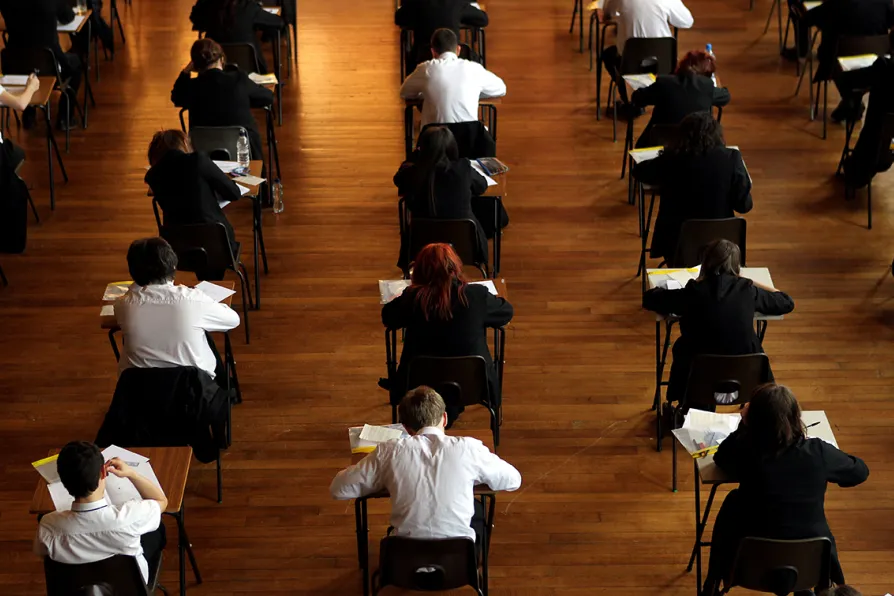
 Pupils taking an exam, March 2, 2012
Pupils taking an exam, March 2, 2012
PUPILS from higher-income backgrounds are more than 40 per cent more likely to get a place at top secondary schools, new research found today.
Academics at the University of Bristol found that 88 per cent of secondary schools used geographical location, such as catchment areas and distance from home to school, to decide where pupils are admitted.
Lead author of the study, Professor Simon Burgess, said data “clearly shows how schools’ geographic admissions criteria are effectively ruling out certain pupils.”
“The process is not random – pupils living in poorer neighbourhoods lose access to the most effective schools, while pupils in richer areas are hugely favoured,” he said.
The government said that it will introduce the Children’s Wellbeing and Schools Bill, which will “require councils and schools to work together on admissions to make sure every family has access to a good local school.”
It comes as research by the National Education Union warned that an “obscene” amount of money meant for children’s education is being “funnelled into six-figure CEO salaries” at academies.
A study of 31 multi-academy trusts in North Yorkshire suggested that while schools struggle with budget shortfalls and redundancies, CEOs are getting above-inflation pay rises averaging 10 per cent.
Most CEO pay is published within bands, so the research is based on median calculations of each band from between 2022-2023 and 2023-2024.
Gary McVeigh-Kaye, NEU branch secretary for North Yorkshire, said: “Public education was founded on the principle that learning is a shared good — a collective investment in the future of society.
“The concentration of wealth and power in the hands of MAT executives undermines this principle, transforming schools into quasi-corporations governed by opaque boards and insulated from democratic oversight.”
The research suggested that academy bosses in North Yorkshire collectively raked in £4.3 million last year.
“Indeed, it appears that some of these CEOs are magicians, because for every penny that is stripped from front-line education a pound falls into their already bulging pay packets,” Mr McVeigh-Kaye said.
“If our research is incorrect, then we are happy to recalculate our findings.
“The only way we can do this is for CEOs to publish their actual salary and not hide behind these opaque bands.”










